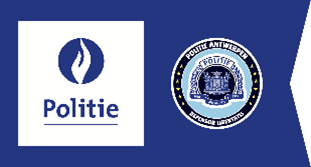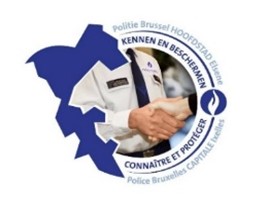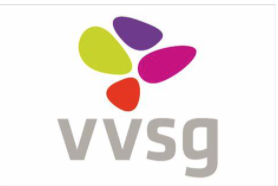-
Who We Are
WHO WE AREThe International Organization for Migration (IOM) is part of the United Nations System as the leading inter-governmental organization promoting since 1951 humane and orderly migration for the benefit of all, with 175 member states and a presence in over 100 countries. IOM has had a presence in Belgium since 1973.
About
About
IOM Global
IOM Global
-
Our Work
Our WorkAs the leading inter-governmental organization promoting since 1951 humane and orderly migration, IOM plays a key role to support the achievement of the 2030 Agenda through different areas of intervention that connect both humanitarian assistance and sustainable development. IOM in Belgium and Luxembourg provides a comprehensive response to the humanitarian needs of migrants, returnees and host communities.
Cross-cutting (Global)
Cross-cutting (Global)
- Data and Resources
- Take Action
- 2030 Agenda
Research shows that a transparent and neutral police force is essential for the population to have trust in the police. If there is trust, the actions of the police will be better accepted and legitimized in the eyes of the population.
The objective of this project is to inspire the Belgian police force, to contribute to the eradication of all forms of racism, xenophobia and other forms of intolerance and discrimination within the Belgian Police force and by the Belgian police towards migrant communities.
To attain its general objective, the project will focus on the following four specific objectives:
- Improve the police’s Human Resources policy and processes to increase migrant representation in the police corps and retain police officers with a migration background.
- Improve the quality of the existing complaint mechanisms to increase their accessibility to victims of racists and xenophobic acts and efficacy in addressing acts of racism, xenophobia and other forms of intolerance.
- Improve community policing and trust between migrant communities and the police to reduce racial bias, xenophobia and intolerance.
- Facilitate transnational exchange among stakeholders on local, national and European levels to contribute to the eradication of all forms of racism, xenophobia and intolerance in police forces in the EU.
The project is funded by the European Union’s Rights, Equality and Citizenship Programme (2014-2020)
.png)
First Newsletter COP
After 6 months since the start of the CoP-project, the project team has launched its first edition of the COP Newsletter. In this newsletter you will find project updates, upcoming activities and events, an interview with one of our project partners, and more.
If you would like to be on the subscription emailing list for the newsletter, please send sdumortier@iom.int a message with the subject 'subscription newsletter'.
Let us know what you think of our first edition! You can find the newsletter in 3 languages below.
Surveys HR/complaint mechanism
In line of our project, we are hosting several surveys to get insights in the experiences of citizens/police officers when it comes to human resources policies and complaint mechanisms:
- Are you a citizen who has filed a complaint/wanted to file a complaint and want to share your experience (anonymously)? Access the survey here.
- Are you a police officer who has filed a complaint/wanted to file a complaint and want to share your experience (anonymously)? Access the survey here.
- Are you a police officer with a migration background and do you want to share (anonymously!) your insights on the human resources policy/recruitment of the police? Access the survey here.
- Are you a police officer without a migration background and do you want to share (anonymously!) your insights on the human resources policy/recruitment of the police? Access the survey here.
The surveys are accessible in English, Dutch and French, by clicking on the language options at the beginning of the survey.
If you would prefer to share your experience in Dutch, French or English with one of our colleagues by calling with us, leave your telephone number here.
Partnerships & Stakeholders
- CoP is implemented in partnership with:
-
 .
. 

 .
.  .
. 


-
The following stakeholders will also be involved:
-



